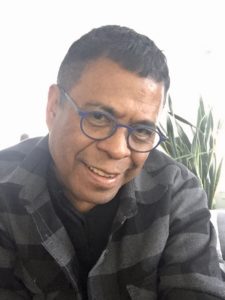PROVINCETOWN — The results of a town diversity audit are in: Provincetown year-rounders are mostly white and older, on average, than the rest of the state, and the community is experiencing brain drain.
Consultant Earl Hinton presented his findings — based on 2020 U.S. Census data — to the select board on Nov. 8. This look at the demographics of the town was meant to set a direction for a new diversity, equity, and inclusion (DEI) officer, expected to be hired early next year. Town meeting voters appropriated $136,000 in May to create the new office.
Hinton, who retired from his job as a human resources officer at Fidelity Investments in 2017, will charge “up to $5,000” for the audit, which he said was much less than his usual fee, because “this is my community.”

Hinton said that 87 percent of Provincetown’s population was white. (In fact, the 2020 census found that the percentage was 85, not 87.) Of 3,664 residents, 548 were Black, Hispanic, Native American, Asian, or multi-racial.
The median age of town residents was 57, compared to the state and U.S. median of 39 years. Only 652 people — 18 percent of the total — under the age of 40 live in Provincetown all year. Just 59 homes contain children under 18.
About 25 percent of the town’s residents have a master’s degree or higher, Hinton said. (The percentage statewide is about 18.)
What can a DEI office do to increase diversity, equity, and inclusion?
On the issue of racial diversity, not much, Hinton said.
Research by the Urban Institute found that people of color like to live among people who look like them, said Hinton, who is Black. If that is true, they will have to look on the other side of the bridge because the whole Cape is largely white, said Hinton.
“So, there is not a lot we can do with diversity, but there is a lot we can do with equity and inclusion,” he said.
With 548 nonwhite people in the entire town, he said, these people are at serious risk of feeling “invisible” and lacking representation.
“We have to ask ourselves how to become more inclusive,” he said.
For example, the DEI officer could reach out to minorities, as they are not exactly coming out of the woodwork to participate in town government.
Select board member Louise Venden said she doubted the DEI officer can do much about that.
People of color do not participate in town government or the census, Venden said after Hinton finished his presentation. If they have not been involved before, why would they decide to join in now?
Hinton said the school already has connections in nonwhite communities, given that 51 percent of its 133 students are Black, Hispanic, or multi-racial.
For that reason, he continued, the school committee should try to be more diverse. The town should not allow itself to become separate or “siloed” from the school department — at least in terms of outreach to underrepresented parents, Hinton said.
Generational diversity requires similar inclusion outreach work, Hinton said. Young people do not join committees because they are too busy working. So, he said, the town should schedule some meetings during the day for restaurant workers; and the town hall could open on Saturdays so that working people can have better access to municipal staff.
As college educated residents move away, outside consultants are more often called on for community problem-solving, Hinton said. One way to counter the high cost of consultants is to network with other towns on the Outer Cape.
There is another source of brain power, he said — nonresident taxpayers.
Nonresident taxpayers’ association members often let their desires and opinions be known during the public comment section of select board meetings. Unlike parents and immigrants, they speak up, Hinton noted, but they are not allowed on regulatory committees by town charter.
“We don’t let them participate in policymaking,” Hinton said. “They have housing and tech resources; they are attorneys and business owners. They could help on a number of fronts. We don’t always leverage what is available to us.”
The Job Description
The DEI director will not be in control of what occurs in private businesses or homes.
“I am not going to tell a business owner what they can or cannot do,” Hinton said. The office’s focus is to make government polices inclusive and equitable and increase diversity among those involved in government.
Resolving complaints about racist, sexist, or agist harassment cannot be the purview of the DEI officer, Hinton said. But he or she can refer complaints to the long-established (but little known) Barnstable County Office of Human Rights or other appropriate entities.
The job description calls for someone with a bachelor’s degree or knowledge equivalent to a bachelor’s degree, “emphasizing public administration human resource management,” the posting states. The person must have “practical relationship management” experience and “robust inquiry and diagnostic capabilities.”
The select board expressed admiration for Hinton’s work on the audit and the job description. Venden, who had previously expressed concern about creating “a new bureaucracy,” said, “This is a powerful first step.”



